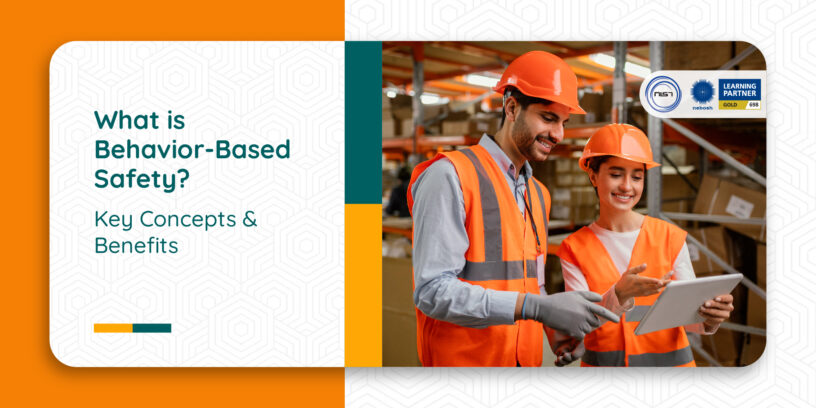Environmental, health, and safety (EHS) managers are constantly looking for ways to reduce risk, prevent hazards and incidents, and enhance the overall safety culture within their organisation. Behavior-based safety (BBS) is an effective strategy that may be used to achieve all of these objectives.
What is Behavior-based Safety?
Behavior-based Safety (BBS), in its simplest form, is a technique for preventing human error and enhancing workplace safety by observation and analysis of employees’ work-related behaviour. Let’s look at some of the main ideas in BBS and the steps EHS managers and experts may take to implement the ideas in their organisations.
To clear up a widespread misunderstanding about Behavior-based Safety, however, we must first emphasise one thing before moving forward: Blaming the employee for safety lapses is NOT the goal of behavior-based safety. It involves giving constructive criticism when unsafe behaviours are noticed while also positively encouraging safe behaviours.
The basic principle of behavioural safety is to assist employees in performing a job safely as the result of a series of safe behaviours. BBS assists in determining why at-risk behaviour happens on the job and the procedures required to turn at-risk behaviour into safe behaviour.
The BBS technique encourages safe behaviour through the use of strategies and activities. Safety signage, training, safety rules and policies, and safety meetings, for example, are all tools that can be used in a behavioural safety framework. It also observes behaviours to decide whether they are safe or dangerous, and it utilises positive or negative performance feedback to reward safe behaviour and change unsafe behaviour.
Positive Feedback is Crucial to BBS
Positive verbal reinforcement is a key component of successful Behavior-based Safety and a potent tool to reinforce safe behaviour. Be explicit about what you saw when you give staff comments on safe behaviour. When providing feedback, be careful to include the person or group by name. Using the words “but” or “however” when providing positive feedback reduces the impact of the message, thus avoid doing this in your communication.
Importance of Corrective Feedback
While we emphasise that Behavior-based Safety is not about condemning employees, you should also never disregard risky behavior—it could lead to an incident, an accident, or worse. You must provide corrective feedback when you witness an employee engaged in risky behaviour.
Corrective feedback is information on what an employee is doing incorrectly as well as suggestions for change. It does not simply warn employees (which may result in retaliation against your efforts), but rather draws attention to a specific behaviour and helps enhance the likelihood of safer behaviours in the future.
To provide corrective feedback, keep in mind:
- Don’t describe any other behaviours; instead, be focused and concentrated on the right behaviour.
- Talk about the behaviour, not the person, and maintain objectivity.
- Make sure staff members are aware of the safe behaviour and why it is crucial for their safety.
For EHS Managers
Behavior-based Safety also provides the additional benefit of enhancing a company’s overall safety culture. EHS managers can use BBS to identify both safe and unsafe behaviours in order to prevent incidents. Organisations are able to make safety a central tenet of their corporate principles and a fundamental component of their entire culture by having regular, consistent, and transparent communication on safety concerns like behaviour.
EHS managers, along with staff and higher management, can foster an environment where safety is top-of-mind every single day by adopting a more thoughtful approach to behaviour. Behavior-based safety can help you make sure that workers not only complete their tasks, but do so in a way that actively improves health and safety when used in conjunction with appropriate tracking and analytical tools.
Behavior-based Safety Consultancy & Bespoke Training @NIST Global
The BBS (Behaviour Based Safety) Training Programme & Consultancy is suitable for proactive organisation employees as well as employers that want to enhance their safety culture. You can get in touch with NIST Global to arrange for specialised on-site / offline training in behavior-based safety or BBS Consultation by experts to leverage fundamental competencies.
Call our specialists at +91 8754465588 for behavior-based safety training / consultancy, or send an email to info@nistglobal.com.














Leave a Reply